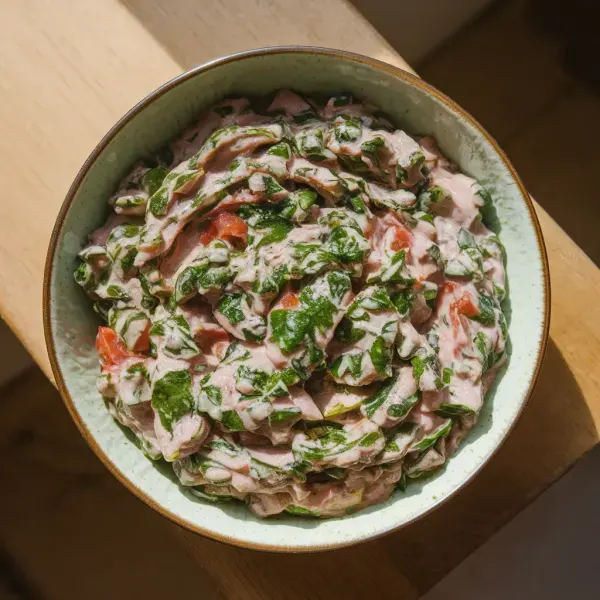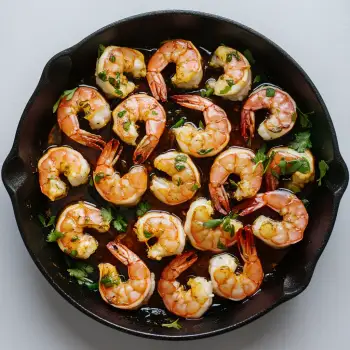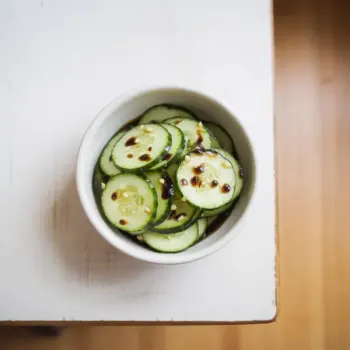
 60 minutes
60 minutesA rich and flavorful dip made from roasted eggplants, seasoned with fresh herbs, garlic, and lemon juice.


Eggplant, sliced and roasted
0 lb
Olive Oil, drizzled
0.25 fluid ounces
to taste
Black Pepper, freshly ground
to taste
Lemon Juice, freshly squeezed
tablespoons
Garlic, pressed
cloves
Flat Leaf Parsley, chopped
tablespoons
1. Preheat Oven and Prepare Eggplants
Preheat your oven to 400°F. Slice the eggplants in half lengthwise and place them cut-side up on a baking sheet. Drizzle generously with olive oil and sprinkle with salt and freshly ground black pepper. Ensure each half is evenly coated.
2. Roast Eggplants
Place the seasoned eggplants in the preheated oven. Roast until they are soft and tender, especially at the stem end. This should take approximately 30 minutes.
3. Prepare Eggplant Puree
After roasting, allow the eggplants to cool until they can be handled comfortably. Scrape the softened flesh into a bowl, leaving the skins behind. Use a fork to gently loosen the eggplant flesh into a purée, keeping some texture.
4. Season the Eggplant Puree
To the eggplant purée, add fresh lemon juice, olive oil, a pinch of salt, and a dash of black pepper. Press a garlic clove through a garlic press and mix into the eggplant along with chopped parsley or cilantro.
5. Final Adjustments and Serve
Taste your eggplant caviar and adjust the seasoning if necessary, adding extra salt or lemon juice as desired. Once satisfied, the eggplant caviar is ready to enjoy with crusty bread or as a dip for vegetables.
Prior to roasting, slice the eggplants and sprinkle them generously with salt. Let them sit for about 20-30 minutes. This process draws out excess moisture and reduces bitterness, giving your caviar a more complex, layered taste.
Select smaller, firm eggplants with smooth, glossy skin. They tend to have fewer seeds and a sweeter, less bitter flavor profile, which can contribute to a more balanced and pleasant final dish.
Incorporate minced garlic, onions, and a touch of good-quality olive oil while the eggplant is still warm to let the flavors meld more effectively.
A judicious squeeze of lemon juice or a splash of vinegar can add the necessary acidity to brighten up the dish. Taste continually to balance this against the eggplant's inherent earthiness.
Roast your eggplants until the skin is thoroughly charred and the flesh is buttery soft. This charring can be effectively done on an open flame, under a broiler, or on a grill to introduce smoky notes that deepen the flavor of your dish.




Comments (0)